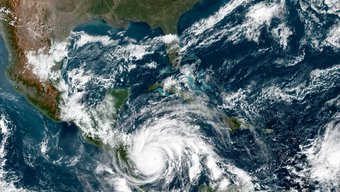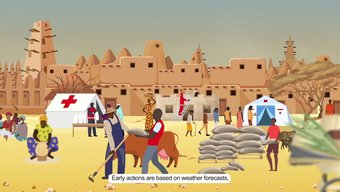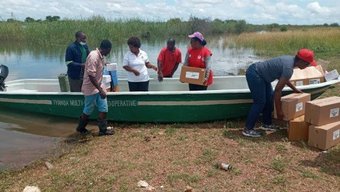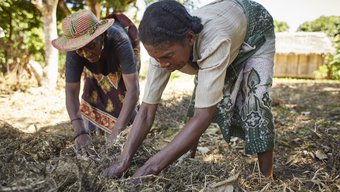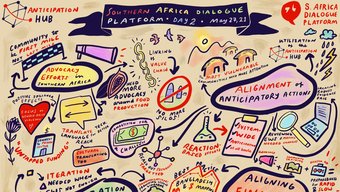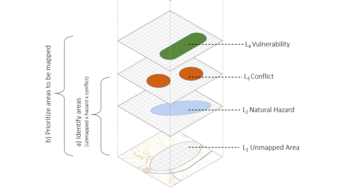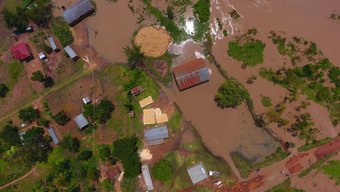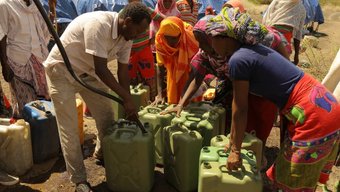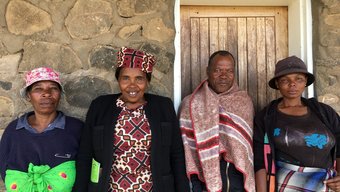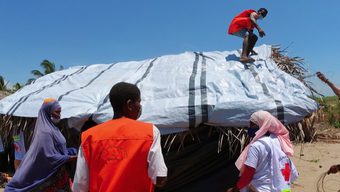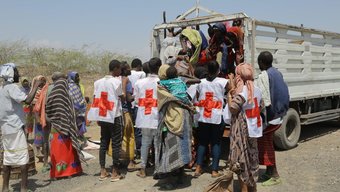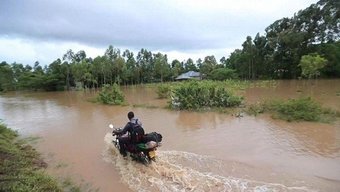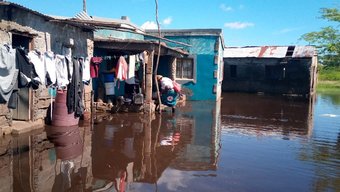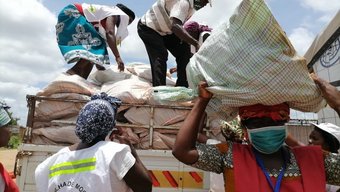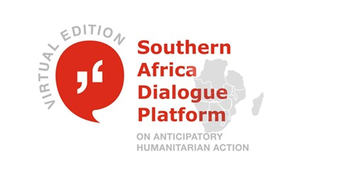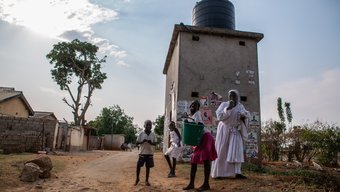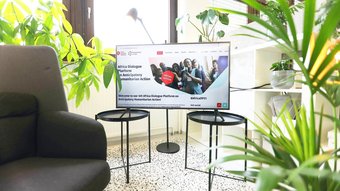Categories
Anticipatory Humanitarian Action in Sub-Saharan Africa
Anticipatory Humanitarian Action is gaining great momentum across Africa with engagement from various stakeholders, including but not limited to, the Red Cross and Red Crescent (RCRC) Movement, Food and Agriculture Organization (FAO), World Food Programme (WFP), OCHA, START Network, governments, National Meteorological and Hydrological services, research institutions and universities. These stakeholders are partnering at country, regional and global levels to implement anticipatory action projects and initiatives.
International research collaborations are also taking place helping to strengthen new scientific knowledge, tools and partnerships to support anticipatory action in Africa. For example, “Forecast for Anticipatory Humanitarian Action” (FATHUM) and “Forecast-based Preparedness Action” (ForPAc) supported joint trigger development in Kenya, Ethiopia and Uganda. We are excited to highlight that University of Eduardo Mondlane, University of Namibia, University of Lesotho, Stellenbosch University and Makerere University, have all joined as partners of the Anticipation Hub.
Facts and figures
Early Action Protocols in Mali (floods), Niger (floods), Zambia (floods) and Mozambique (floods and cyclones) have been approved by the Disaster Relief Emergency Fund and EAPs are being validated in Kenya (floods), Uganda (floods) and Ethiopia (floods).
Country and project pages in Sub-Saharan Africa
You can find detailed information on anticipatory action projects in Africa from our country pages. Initiatives on anticipatory action in Africa are organized in three regions:
- Southern Africa region
- Eastern Africa region
- Sahel region
Sub-regional update pages will be developed soon.
View country pagesWorking groups
The Africa region has developed multiple working groups at the regional and sub-regional levels facilitating knowledge sharing and exchange on anticipatory antion.
- Africa wide forecast based financing technical working group
- Southern Africa Regional forecast based financing technical working group
- Southern Africa Climate Change Task Team
- Eastern Africa regional forecast based financing technical working group
- Food Security Nutrition Working Group
Phoebe Wafubwa Shikuku
Disaster Risk Reduction & Forecast based Financing Advisor, IFRC Regional Office
Jurg Wilbrink
Disaster Risk Reduction & Forecast based Financing Advisor, IFRC Pretoria Cluster
Irene Amuron
Technical Advisor, Red Cross Red Crescent Climate Centre
Regional resources
- Southern Africa Forecast based Financing launch during the International Disaster Risk Reduction Day
- The evolving landscape of climate services in sub-Saharan Africa: What roles have NGOs played?
- FATHUM Policy Brief: Langeberg Municipality Flood Risk Context – Improving Early Warning
- Understanding the status and need for anticipatory early action in lower Tana and lower Athi River Basins, Kenya
- FATHUM Policy Brief: Understanding the local context – A must for successful Forecast based Financing: The case of Amuria district, Uganda
- FATHUM Policy Brief: FbF - A mechanism for improved Disaster Preparedness in Mozambique
- Uganda Risk Profile Report
- Mozambique Country-Specific Risk and Vulnerability Profile Report (by FATHUM)
- South Africa Risk Profile Report (by FATHUM) 2019
“Whereas traditional disaster response is based on damage-limiting reaction to weather-related hazards, FbF focuses on anticipating them with the help of scientific data and research.
The Red Cross Red Crescent Movement is a pioneer in the area of disaster management. With FbF, we continue along this path, but instead of responding only, we now anticipate adverse events, and provide humanitarian assistance accordingly. It’s a real game-changer for us.”
Africa Dialogue Platform 2020 LIVE Blog
The 3rd Africa Dialogue Platform was held virtually from the 27th to 29th of October 2020 with nearly 300 participants. A wide range of diverse and interactive events took place, around the topics of anticipation in the humanitarian system, Forecast-based Financing, Early Warning-Early Action and Disaster Risk Financing..
Click below to access the LIVE Blog and re-watch the plenaries and sessions:
Visit the event platform

